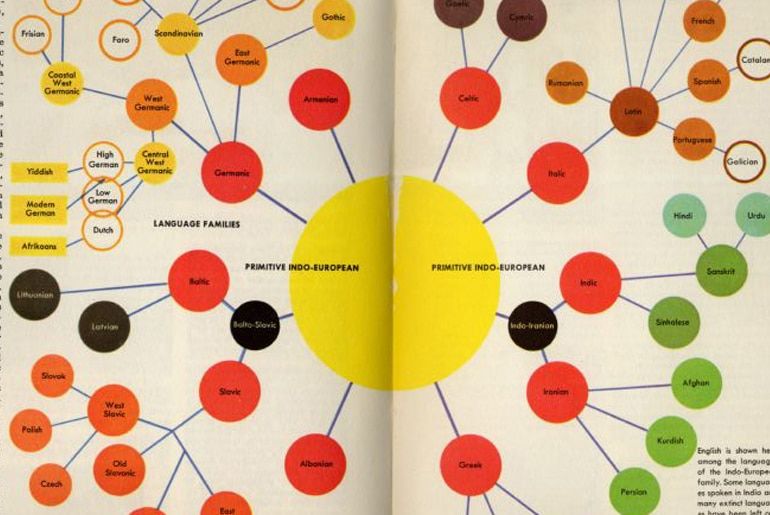How To Become A Polyglot: 12 Tips For Learning Languages
What’s a Polyglot? It’s someone who knows more than one language and despite Google Translate and Siri being available, in today’s multicultural world being able to speak more than one language is a real bonus. In this article Susan Wallace gives you 12 tips to increase your linguistic prowess.

Before we discuss how to become a polyglot, first let’s find out what actually is a polyglot? This term is used to describe people who know more than one language. The person who knows two languages is known as bilingual, three languages earn the term trilingual and knowing four languages will award you with the title of quadrilingual, but you don’t need to learn some exact number of languages to become a polyglot. It is established safely that the one who knows more than one language is a polyglot.
With everything coming online, and the internet becoming the hub of the world and a global marketplace, you can also learn languages online. A language learner only has to install a few apps or go to certain websites or online guides like this one. The whole process is easier than ever.
However, it is true that to learn different languages, you have to be prepared that you would have to adjust to very specific rules that every language has. French for example has rules and constraints that no other language has. It has things divided into masculine or feminine gender, and you cannot use generic words for objects like a wall-clock or a wrist-watch. There are many places and polyglot club online that can help you to enroll in a dialect learning course.
If your dream language is something that you cannot learn anywhere in your city or nearby, you can always enrol in an online course that can help you speak languages in proper dialect.
Here are 12 unsaid rules of being a polyglot:
Prepare yourself mentally
First and foremost thing on the way to become a multilingual person is to be mentally prepared for the challenge! You cannot give up once you started and completing the course should be your ultimate goal.
Enroll in an online course of your choice
You can choose an online course or you can learn the language the traditional way – through books and course material.
Read books in other languages
If you have read one book in English, read the same book in the language you want to learn. Reading the same book in a different language will help you to get acquainted with it faster and with more accuracy.
Use your free time for learning new dialects
Becoming someone who knows more than one dialect isn’t an easy thing. It requires extra effort and usually, you must develop a habit of studying or reading things in your free time, and utilizing that free time for something productive.
Start with learning small and basic words
Start with learning the words that you already know in your language, and then move ahead and learn the ones that are more complicated and complex. That is why you must always start with common greetings like – “Hello,” “How are you doing?” Simple sentences like – “Good Morning”, “Have a nice day”, are easier to learn in another language, as compared to complex terms and phrases.
Do not ignore the pronunciation
Once you know certain words in a new language, that does not mean you are fluent in it. To become truly fluent in a language, you must learn them with proper dialogue delivery and the correct pronunciation. Without knowing how to pronounce a word, you haven’t learned the language fully.
Use your traveling time in learning something new
If you are in a new place you can always interact with local people in their local dialect without using the dictionary or any translation app. You might speak the wrong words or use wrong tenses, but interacting with people is the best way to learn.
Become friends with people who speak other languages
If you are in a new place for study or work, try to make local people who can help you master that native language. It is one of the most effective and fastest ways to get acquainted with a language and to become comfortable in interacting with people who speak it.
You do not need to spend
Those who think that the only way to learn new languages is to spend a lot of money on online courses or classroom training sessions, haven’t understood the true power of internet yet. If you are willing to learn – the best resources are free! You can always find many free online courses and online guides and mentors who provide flawless and accurate training to people from other countries and help them master a language.
Kids have higher learning power
If you are an adult, it might be tougher for you to learn a new language as compared to if you were a kid. Kids have higher learning capacity and better cognitive memory to store new things that they learned, something that adults lack!
Embrace your mistakes
It is highly common to make mistakes while learning something new, don’t be embarrassed, embrace and accept them. Find the power to learn something properly without giving up!
Sprint your tasks
Lastly, it is essential to set goals for yourself and do not go in a haphazard manner. Set a proper timeline for everything and do things as you have planned. Divide your tasks into small everyday goals, accomplish them and move ahead. This is the fastest way to master a language!

